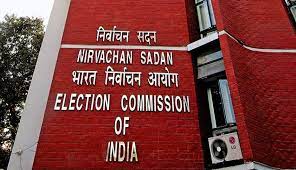
The State Bank of India (SBI) has appealed to the Supreme Court for an extension until June 30 to provide information regarding electoral bonds to the Election Commission. This request comes in the wake of the Supreme Court’s landmark decision last month to invalidate the electoral bonds scheme and instruct SBI to furnish the information to the Election Commission by March 6.
The Supreme Court’s ruling, hailed as a significant judicial milestone, declared the electoral bonds scheme unconstitutional, citing concerns over citizens’ right to information. Chief Justice of India DY Chandrachud deemed the scheme arbitrary and prone to fostering a quid pro quo relationship between political parties and donors.
In compliance with the court’s directives, SBI was mandated to cease the issuance of electoral bonds and disclose details of donations made through this medium to the Election Commission. The Election Commission, in turn, was instructed to publish this information on its website by March 13.
The constitutional bench of five judges unanimously concluded that the electoral bonds scheme failed to achieve its purported objectives of combating black money and ensuring donor anonymity. The court underscored that electoral bonds were not the sole method for addressing the issue of illicit funds infiltrating the political landscape.
Introduced in 2018 with the aim of curbing the flow of illicit funds into politics, the electoral bonds scheme faced mounting criticism from various quarters. Critics, including the CPM, Congress leader Jaya Thakur, and the non-profit Association for Democratic Reforms, argued that the confidentiality clause impeded citizens’ right to information.
Former Finance Minister Arun Jaitley, who spearheaded the implementation of the scheme, defended it as a crucial step towards transparency in political funding. Jaitley contended that the conventional practice of cash donations fostered opacity and obscured the true origins of political contributions. He maintained that the confidentiality clause was essential to prevent donors from reverting to cash transactions.
Following its implementation, the electoral bonds scheme encountered legal challenges, ultimately culminating in the Supreme Court’s ruling against its constitutional validity. As SBI seeks an extension to comply with the court’s directives, the future of political funding in India remains a subject of intense scrutiny and debate.
Sources By Agencies

